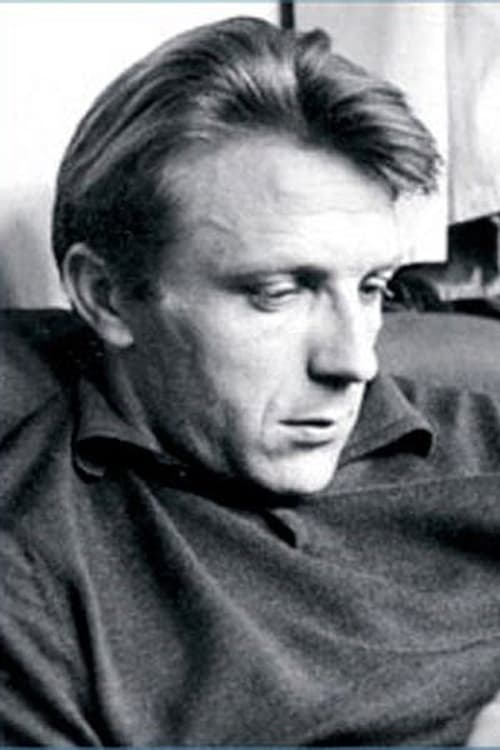Jean Eustache
Рождение : 1938-11-30, Pessac, Gironde, France
Смерть : 1981-11-05
История
Jean Eustache was born on November 30, 1938 in Pessac, Gironde, France. He was a director and editor, known for The Mother and the Whore (1973), Mes Petites Amoureuses (1974) and Les photos d'Alix (1980). He died on November 3, 1981 in Paris, France.
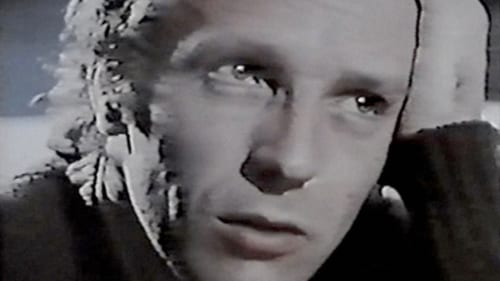
Self (archive footage)
Philippe Garrel’s documentary on France’s second wave of masterful filmmakers. Featuring Jean Eustache, Chantal Akerman, André Téchiné, Leos Carax, Jacques Doillon and Benoit Jacquot.

Thanks
Philippe Garrel’s documentary on France’s second wave of masterful filmmakers. Featuring Jean Eustache, Chantal Akerman, André Téchiné, Leos Carax, Jacques Doillon and Benoit Jacquot.

Himself
Milena Gabanelli sits in her room while listening to one of the last voice recordings of Jean Eustache.

Director
A man looks for a job, ignoring the selection process of employees. Part of "Contes modernes: A propos du travail."

Writer
Filmed by Jean Eustache for the television program, Les Enthousiastes, Hieronymous Bosch's Garden of Delights presents a series of unstructured observations, free associations, and interpretations on the third panel of Bosch's well-known oil on wood triptych.

Director
Filmed by Jean Eustache for the television program, Les Enthousiastes, Hieronymous Bosch's Garden of Delights presents a series of unstructured observations, free associations, and interpretations on the third panel of Bosch's well-known oil on wood triptych.

Director
Alix Cléo Roubaud, a photographer, describes her images to Eustache’s son Boris. An “essay in the shape of a hoax”, Eustache’s last film wittily questions the relationship between showing and telling as it gradually shifts Alix’s narration out of sync with what we see.

Editor
In 1979, under the presidency of the city mayor, the people of Pessac elect a virtuous and gracious maiden from amongst the residents, following a tradition that comes from times immemorial.

Writer
In 1979, under the presidency of the city mayor, the people of Pessac elect a virtuous and gracious maiden from amongst the residents, following a tradition that comes from times immemorial.

Director
In 1979, under the presidency of the city mayor, the people of Pessac elect a virtuous and gracious maiden from amongst the residents, following a tradition that comes from times immemorial.

Director
A group of friends listen as one man tells them a story about a time when, in a small cafe, he discovered a peephole into the ladies' bathroom and became addicted to looking through it at female genitals. They ask him questions and come to conclusions about sex. This is a filmed, scripted version. Then, the actual person who this happened to relates the same story; this time, however, it is an unscripted documentary, in which the same things occur as in the scripted one.
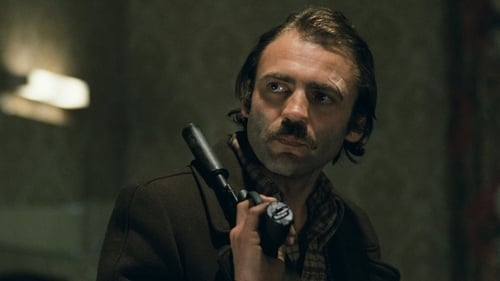
Friendly Man
Йонатан Циммерман, неизлечимо больной владелец небольшой багетной мастерской в Гамбурге, еле сводит концы с концами. На аукционе его пути пересекаются с американцем в стетсоне. Это аферист Том Рипли, зарабатывающий на жизнь сбытом поддельных произведений искусства, но не понимающий цели своего существования и скользящий на грани депрессии. Пути двух уставших от жизни мужчин странным образом пересекаются, и между ними зарождается подобие дружбы. Рипли втягивает своего нового знакомого в деятельность международного преступного картеля, и последующие остросюжетные события, несмотря на то и дело проскальзывающую абсурдность, на время придают их поблёкшей жизни какое-то подобие смысла.

un videur
This is the tale of a father-son duo who are unable to leave each other. The trouble begins when the son decides to destroy his father's image.

Editor
In the French countryside it's the day for peasants to kill a big fat pig. The slaughter goes on for a great part of the day as they work to store 140kg worth of meat.

Screenplay
In the French countryside it's the day for peasants to kill a big fat pig. The slaughter goes on for a great part of the day as they work to store 140kg worth of meat.

Director
In the French countryside it's the day for peasants to kill a big fat pig. The slaughter goes on for a great part of the day as they work to store 140kg worth of meat.
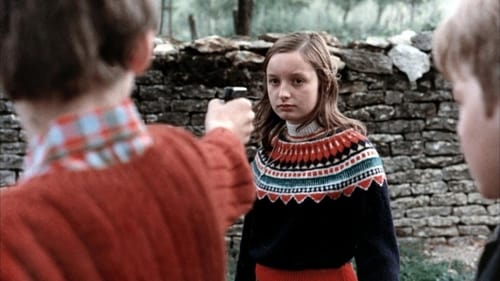
Writer
Даниэль живет со своей бабушкой и после окончания средней школы должен отправиться жить с матерью на юге Франции. Она швея, живет в маленькой квартирке со своим любовником Хосе. Даниэль хотел бы продолжить обучение, но его мать не может себе этого позволить и отправляет его на работу — учеником в мастерскую по ремонту мопедов. Даниэль знакомится в городе с другими мальчиками и девушками. Когда он возвращается навестить свою бабушку в следующем году, то видно, что он вырос быстрее, чем его старые друзья.

Director
Даниэль живет со своей бабушкой и после окончания средней школы должен отправиться жить с матерью на юге Франции. Она швея, живет в маленькой квартирке со своим любовником Хосе. Даниэль хотел бы продолжить обучение, но его мать не может себе этого позволить и отправляет его на работу — учеником в мастерскую по ремонту мопедов. Даниэль знакомится в городе с другими мальчиками и девушками. Когда он возвращается навестить свою бабушку в следующем году, то видно, что он вырос быстрее, чем его старые друзья.
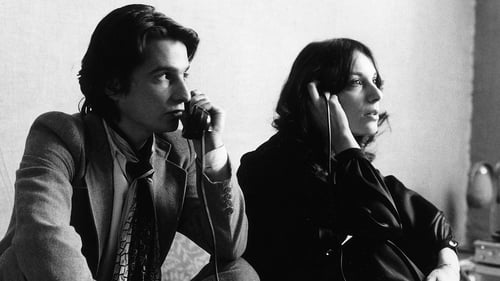
Man in Sunglasses in Store (uncredited)
Бесконечный монолог главного героя, Александра, обо всем на свете, но прежде всего — о женщинах. О женщинах, которые его окружают, которые ему нравятся, которые не обращают на него внимания…

Writer
Бесконечный монолог главного героя, Александра, обо всем на свете, но прежде всего — о женщинах. О женщинах, которые его окружают, которые ему нравятся, которые не обращают на него внимания…

Editor
Бесконечный монолог главного героя, Александра, обо всем на свете, но прежде всего — о женщинах. О женщинах, которые его окружают, которые ему нравятся, которые не обращают на него внимания…

Director
Бесконечный монолог главного героя, Александра, обо всем на свете, но прежде всего — о женщинах. О женщинах, которые его окружают, которые ему нравятся, которые не обращают на него внимания…
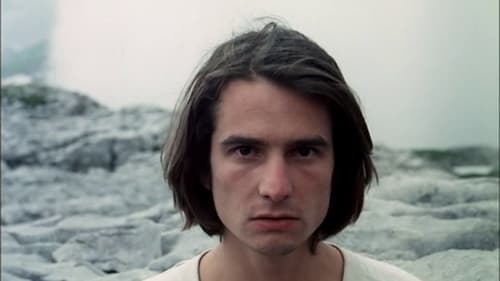
Editor
The intense and twisted relationship between a man and a woman in a bizarre wilderness, as a seductress accompanies a gunslinger fleeing from a posse.

Director
A family portrait in which the director profiles his grandmother, Odette Robert. Eustache includes in the film the conditions of its production — he is seated at the table with her, pours her some whiskey, speaks with the camera operator, manipulates the clapboard at the head and tail of the reels, and even takes a phone call. Robert, who was seventy-one, speaks rapidly and tells the story of her life, starting from her early childhood in villages in the Bordeaux region of France. A shorter version of the film ("Odette Robert") was edited in 1980 to be broadcast on television on TF1. The complete film only gained exposure in 2002, when it was salvaged by Boris Eustache, Thierry Lounas, João Bénard da Costa, Jean-Marie Straub, and Pedro Costa.

A family portrait in which the director profiles his grandmother, Odette Robert. Eustache includes in the film the conditions of its production — he is seated at the table with her, pours her some whiskey, speaks with the camera operator, manipulates the clapboard at the head and tail of the reels, and even takes a phone call. Robert, who was seventy-one, speaks rapidly and tells the story of her life, starting from her early childhood in villages in the Bordeaux region of France. A shorter version of the film ("Odette Robert") was edited in 1980 to be broadcast on television on TF1. The complete film only gained exposure in 2002, when it was salvaged by Boris Eustache, Thierry Lounas, João Bénard da Costa, Jean-Marie Straub, and Pedro Costa.

Editor
Eustache’s grandmother Odette Robert was a key figure in his life, serving as a substitute mother during much of his childhood (My Little Loves was dedicated to her). In 1971, he recorded an interview with her that went largely unseen until 2003—Eustache never screened the complete film publicly, although a radically truncated version was presented on television. In a string of long, stationary takes, the camera watches over Eustache’s shoulder while he pours countless glasses of whiskey and Odette tells the stories of her life. A number of her themes resonate with those of Eustache’s films: cruelty, male philandering, the Rosière festival of Pessac. Number Zero is a return to origins—of cinema and of the self—and an experiment in narration, both restrained and deeply personal.

Producer
Eustache’s grandmother Odette Robert was a key figure in his life, serving as a substitute mother during much of his childhood (My Little Loves was dedicated to her). In 1971, he recorded an interview with her that went largely unseen until 2003—Eustache never screened the complete film publicly, although a radically truncated version was presented on television. In a string of long, stationary takes, the camera watches over Eustache’s shoulder while he pours countless glasses of whiskey and Odette tells the stories of her life. A number of her themes resonate with those of Eustache’s films: cruelty, male philandering, the Rosière festival of Pessac. Number Zero is a return to origins—of cinema and of the self—and an experiment in narration, both restrained and deeply personal.

Writer
Eustache’s grandmother Odette Robert was a key figure in his life, serving as a substitute mother during much of his childhood (My Little Loves was dedicated to her). In 1971, he recorded an interview with her that went largely unseen until 2003—Eustache never screened the complete film publicly, although a radically truncated version was presented on television. In a string of long, stationary takes, the camera watches over Eustache’s shoulder while he pours countless glasses of whiskey and Odette tells the stories of her life. A number of her themes resonate with those of Eustache’s films: cruelty, male philandering, the Rosière festival of Pessac. Number Zero is a return to origins—of cinema and of the self—and an experiment in narration, both restrained and deeply personal.

Himself
Eustache’s grandmother Odette Robert was a key figure in his life, serving as a substitute mother during much of his childhood (My Little Loves was dedicated to her). In 1971, he recorded an interview with her that went largely unseen until 2003—Eustache never screened the complete film publicly, although a radically truncated version was presented on television. In a string of long, stationary takes, the camera watches over Eustache’s shoulder while he pours countless glasses of whiskey and Odette tells the stories of her life. A number of her themes resonate with those of Eustache’s films: cruelty, male philandering, the Rosière festival of Pessac. Number Zero is a return to origins—of cinema and of the self—and an experiment in narration, both restrained and deeply personal.

Director
Eustache’s grandmother Odette Robert was a key figure in his life, serving as a substitute mother during much of his childhood (My Little Loves was dedicated to her). In 1971, he recorded an interview with her that went largely unseen until 2003—Eustache never screened the complete film publicly, although a radically truncated version was presented on television. In a string of long, stationary takes, the camera watches over Eustache’s shoulder while he pours countless glasses of whiskey and Odette tells the stories of her life. A number of her themes resonate with those of Eustache’s films: cruelty, male philandering, the Rosière festival of Pessac. Number Zero is a return to origins—of cinema and of the self—and an experiment in narration, both restrained and deeply personal.

Editor
This landmark documentary by Jean Eustache, filmed in 1968, hilariously exposes small-town pomposity and naiveté as it chronicles the preparations for an annual contest to crown a village’s most virtuous young woman.

Writer
This landmark documentary by Jean Eustache, filmed in 1968, hilariously exposes small-town pomposity and naiveté as it chronicles the preparations for an annual contest to crown a village’s most virtuous young woman.

Director
This landmark documentary by Jean Eustache, filmed in 1968, hilariously exposes small-town pomposity and naiveté as it chronicles the preparations for an annual contest to crown a village’s most virtuous young woman.

A musician has to compose a commissioned work for a film. But his mind is guided by external solicitations that constantly divert him from his work.

Editor
In the third part of a Cinéastes triptych on Jean Renoir, the director sits alone in a cinema analyzing scenes from La Marseillaise and The Rules of the Game, and discussing his editing and storytelling techniques.
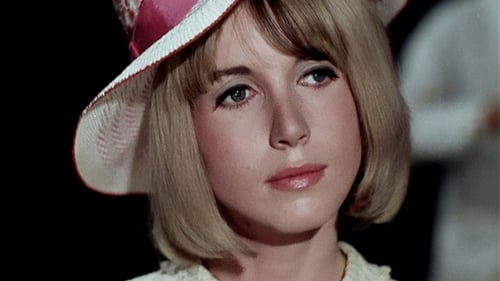
Editor
This satire concerns three French singing idols and their attempt to stay in the public eye. A press conference, backstage hedonism, psychedelia, manipulative managers and disc jockeys are portrayed as the pop culture is thoroughly and effectively lampooned in this independent feature.
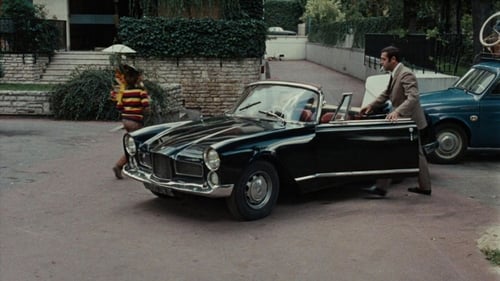
L'auto-stoppeur
Супружеская пара Ролан и Корин собирается провести уикенд на природе. На деле они задумали убить свёкра с целью завладеть наследством. Сразу после расправы над свёкром, муж собирается прикончить жену. Корин вынашивает такие же планы.

Influenced and inspired by Jean-Luc Godard, some young french directors (Jean Eustache, Francis Leroi, Jean-Michel Barjol, Romain Goupil, Luc Moullet) are talking about their problems in producing less expensive and more free films in the french industry of cinema of the 60's.

Editor
Initially a made-to-order documentary on Spain, the film becomes an open-ended work-in-the-making about the creative process. “Settling in the Spanish capital to make a documentary, Hanoun sketches out for us the different steps involved in making a film. The author turns his hesitations, his doubts and difficult working conditions into the constituents of his work”. (Raphaël Bassan)

Editor
Second in the documentary trilogy from mastermind Jacques Rivette, featuring a conversation between Jean Renoir and Michel Simon

Editor
The first of three documentaries by Rivette on Jean Renoir.

Writer
Daniel needs some money to buy a duffle coat that is in fashion, so he agrees to work for a photographer by dressing up as Santa Claus. He discovers that it is much easier to meet girls when he is in his costume.

Director
Daniel needs some money to buy a duffle coat that is in fashion, so he agrees to work for a photographer by dressing up as Santa Claus. He discovers that it is much easier to meet girls when he is in his costume.

Editor
Two men in their twenties spend their time in Parisian cafes trying to pick up women. They take one girl dancing, and then steal her purse when she prefers to dance with another man.

Writer
Two men in their twenties spend their time in Parisian cafes trying to pick up women. They take one girl dancing, and then steal her purse when she prefers to dance with another man.

Director
Eustache’s debut film follows two young men near the place de Clichy, looking for fun and whatever trouble comes with it. Unsurprisingly, their attention ultimately falls on a girl. They go to a dancing called "Robinson". Spurned when she decides to go dancing with someone else, their thoughts quickly turn to revenge. Slowly, we discover the layer of despair that sits just under their carefree appearance. (kg)

Director

Director
Two men in their twenties spend their time in Parisian cafes trying to pick up women. They take one girl dancing, and then steal her purse when she prefers to dance with another man.

François Truffaut said of Paul Vecchiali in his early days that he was "the only true heir of Jean Renoir." The first short film of this director, who was to become a singular figure of independent French cinema, follows the path of an elderly woman towards her memories and beyond. Attentive, affectionate and sometimes cruel, Vecchiali's camera invents its own expressive language.

Writer
Unfinished film by Jean Eustache . A couple kisses. A group of friends talk inside a room. One of them reads from a paper.

Director
Unfinished film by Jean Eustache . A couple kisses. A group of friends talk inside a room. One of them reads from a paper.
